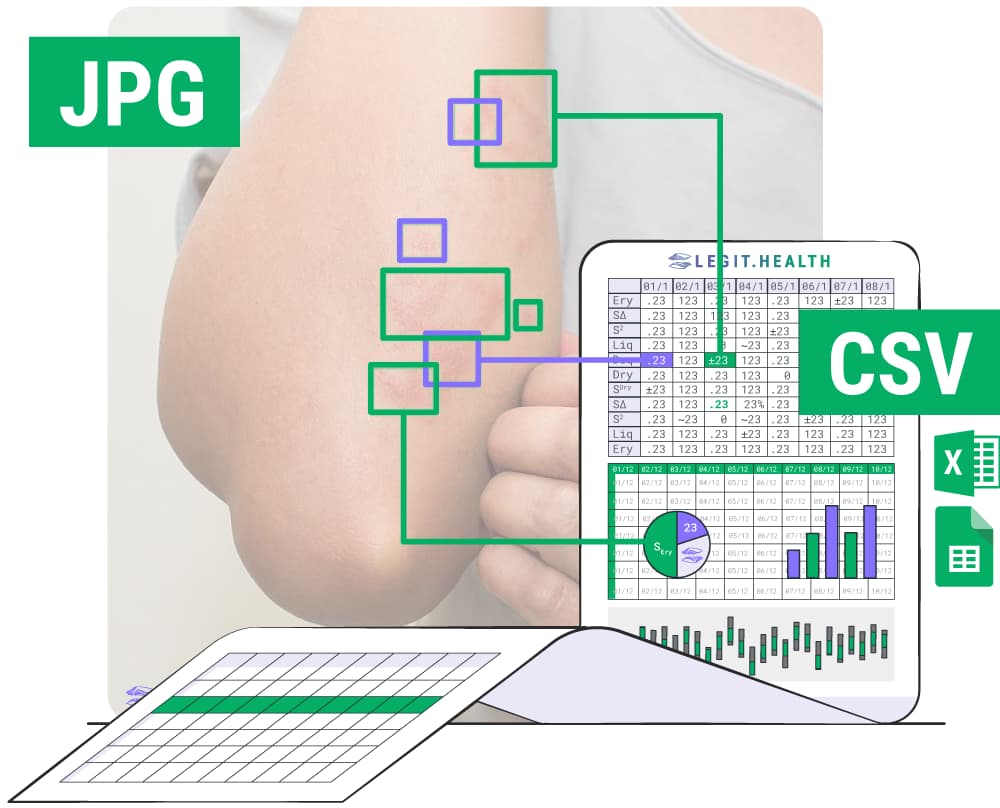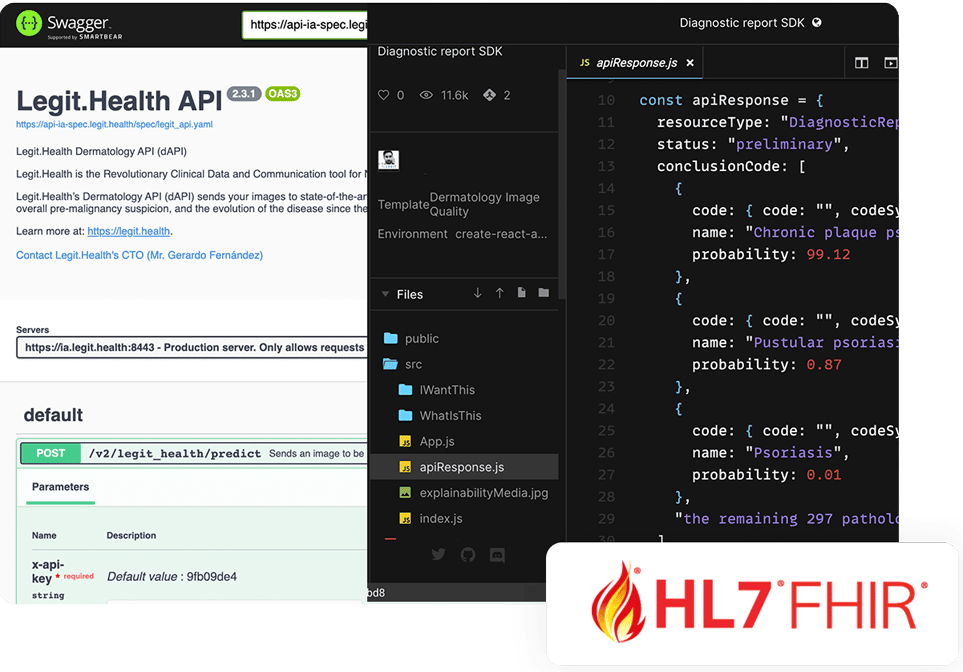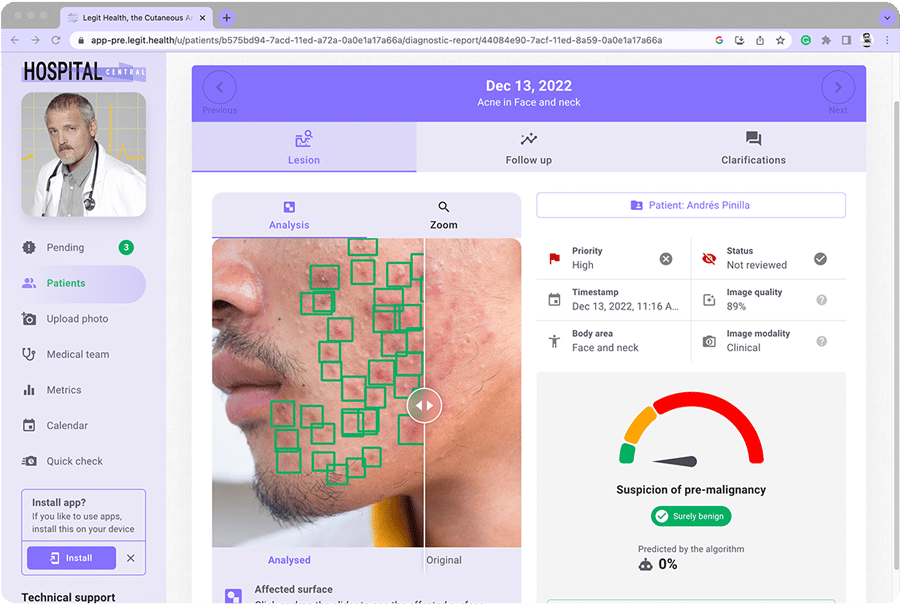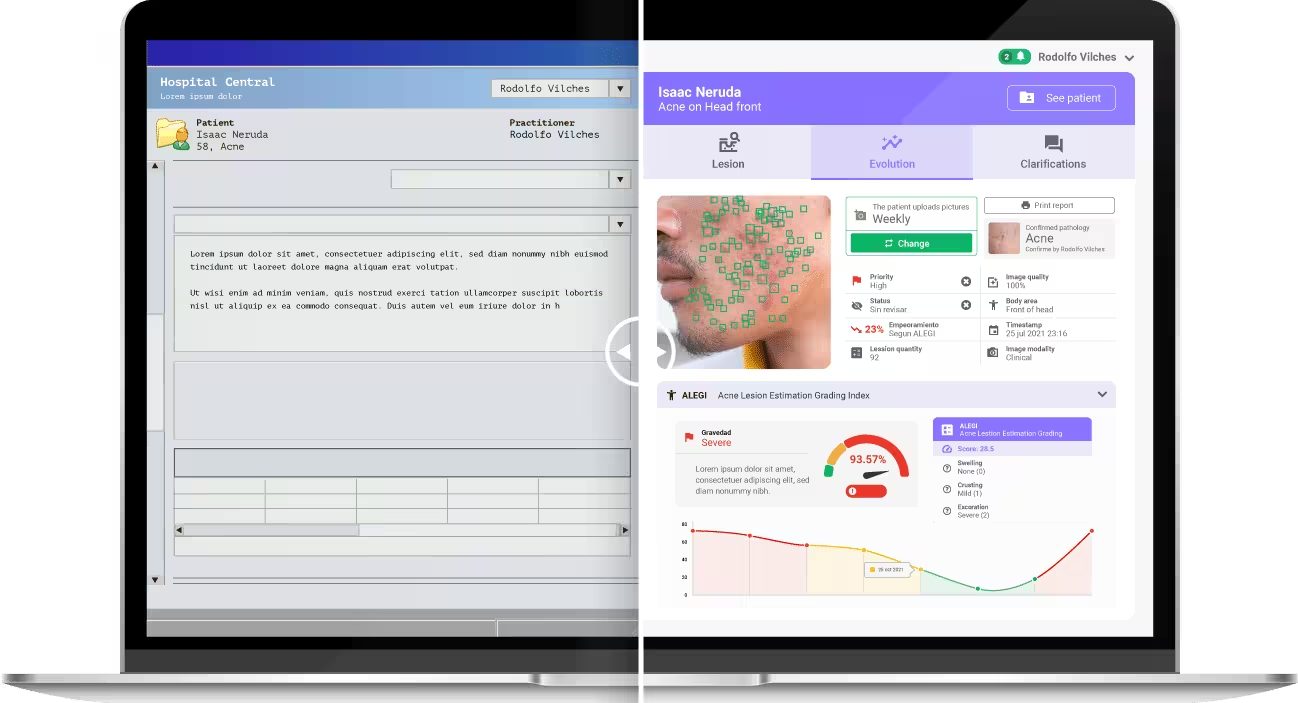Automatic scoring system
Next Generation Derm
Legit.Health is the Revolutionary Clinical Data and Communication tool for Next-generation dermatologists that triples the empowerment of patients.
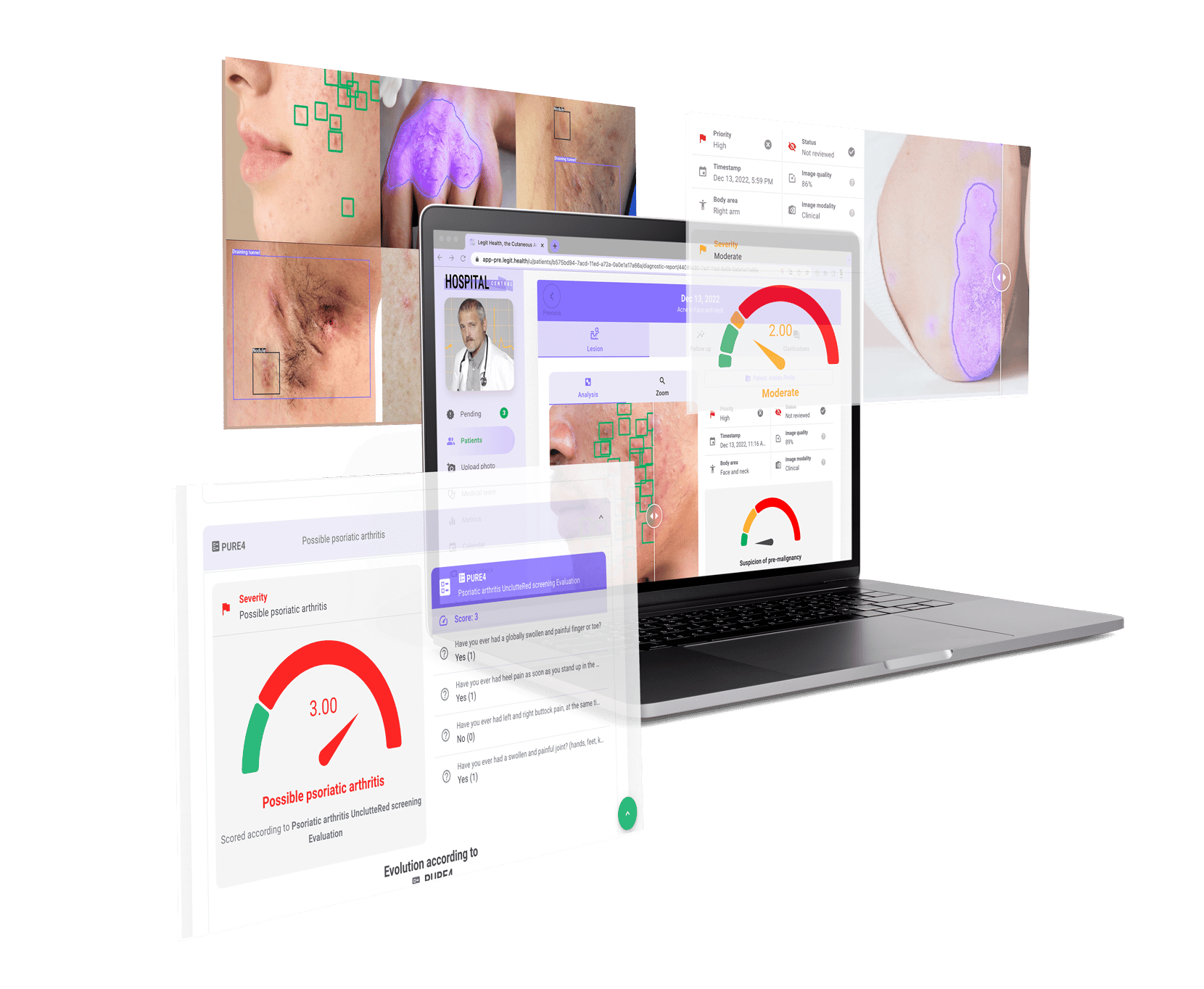
An artificial intelligence built by doctors for doctors.
Features
Smart referralNew
Ensure that the right patient sees the right specialist at the right time and improve the efficiency of your clinical workforce.
Treatment supervision
Automatically measure if patients are responding to treatment with the high-precision neural network.
Diagnosis support
The artificial intelligence provides immediate data to the HCP to assist them in their diagnosis.
Severity measure
Automatically fills in the most common scoring systems (PASI, SCORAD...) just by taking a smartphone image.
Image Quality CheckNew
Ensure in real-time that images taken by users have sufficient clinical utility and automatically provide assistance.
Patient & Doctor app
An easy-to-use interface that allows users to upload photos and understand all the clinical data generated.
News and science
Implementation
There are many ways of implementing Legit.Health's technology into your workflow, depending on your own goals and capabilities.
Some examples include:
Jid innovations
Automatic Scoring of Atopic Dermatitis using Deep Learning (ASCORAD): A Pilot Study. A fast and objective alternative method for the automatic assessment.
Jid innovations
Automatic Urticaria Activity Score (AUAS): A Novel Technology for Urticaria Severity Assessment Based on Automatic High-Precision Hive Counting. Our results show that our algorithm assesses the severity of CU cases with a performance comparable to that of expert physicians.
Jaad
Dermatology Image Quality Assessment (DIQA): Artificial Intelligence to ensure the 3 clinical utility of images for remote consultations and clinical trials. DIQA shows promise as a quality-check tool that improves remote consultation and clinical 62 trials, especially those in which patients with skin pathologies report their condition remotely.
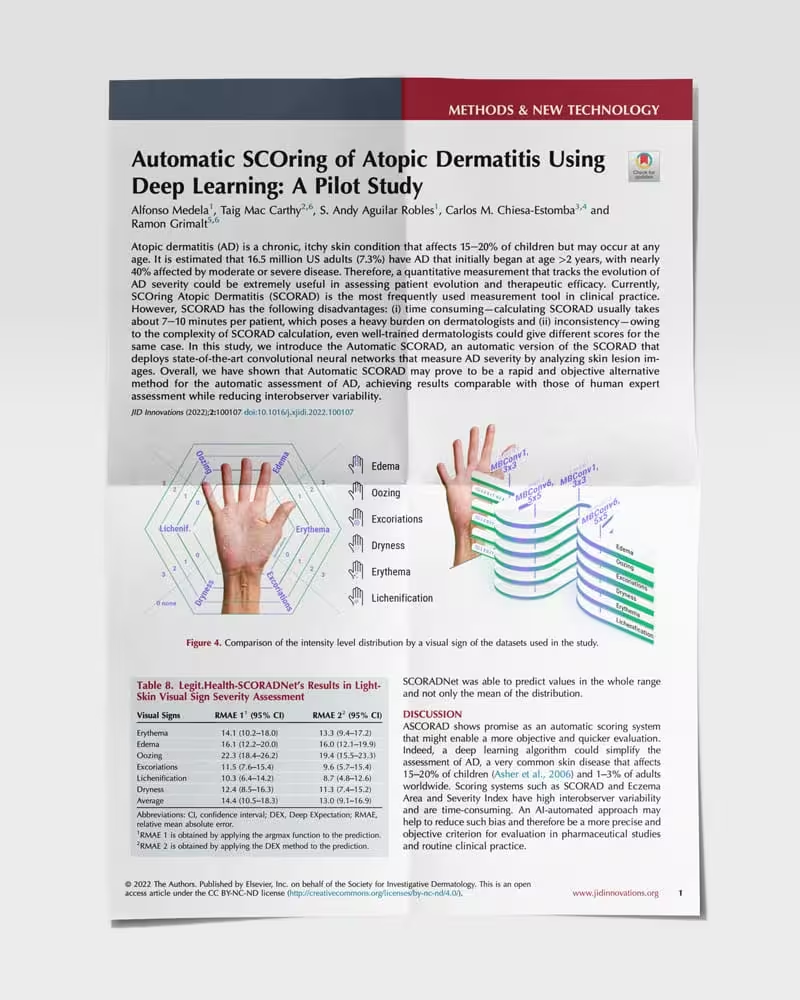
Take your organisation to the next level with Legit.Health's built-in artificial intelligence tools
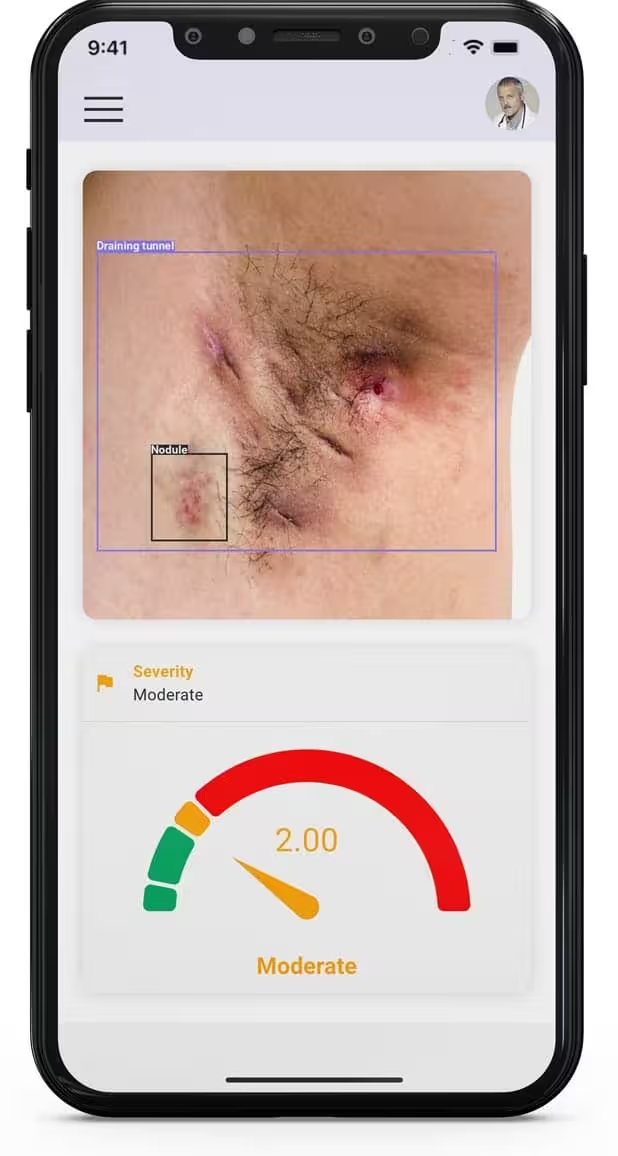
All the tools you need toimprove healthcare
Legit.Health helps doctors make more accurate diagnoses and treatment decisions. It can also be used to assist with routine tasks like follow-up consultations, which can help doctors identify potential problems more quickly and accurately. Additionally, Legit.Health helps with administrative tasks, such as scheduling appointments and managing medical records, which can help free up time for healthcare providers to focus on providing care to patients.
Results of the pilot study in a hospital in Madrid
In this short video, Dr- Elena Sanchez-Largo, dermatologist at the Torrejon Hospital, and Taig Mac Carthy, COO at Legit.Health, share the results of the 1-year-long pilot study.
Let's schedulea live demo
Legit.Health is the all-in-one artificial intelligence solution with ultra high performance, exclusive features and clinical backing.

